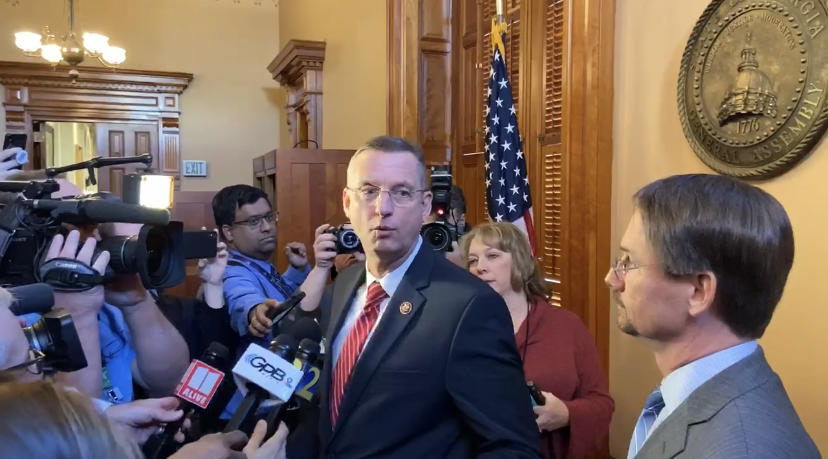Section Branding
Header Content
Doug Collins Prepares Senate Run, Foreshadowing A Bruising Clash In Special Election
Primary Content
Georgia Congressman Doug Collins (R-Gainesville) is taking steps to run for the U.S. Senate seat currently occupied by Sen. Kelly Loeffler (R-Ga.), setting up a contentious campaign to earn Republican votes in a wide-open contest Democrats are hoping to flip.
Collins, ranking member of the House Judiciary Committee and a staunch ally of President Trump, has been informing supporters of his decision in recent days and has no official announcement date planned yet.
He spoke on the Georgia House floor Tuesday to honor the late Rules Chairman Jay Powell (R-Camilla) who died late last year. Afterward, he said nothing to reporters about his aspirations except more information would come soon.
His allies in the Georgia state legislature have moved quickly to boost his chances of defeating Loeffler, appointed by Gov. Brian Kemp in January to replace retiring Sen. Johnny Isakson.
A bill that would give the secretary of state authority to set qualifying dates for special elections that was designed to force Democratic Senate candidates to choose between one of the two races on the ballot this fall was changed in a subcommittee Monday afternoon.
RELATED: Bill That Would Change US Senate Special Election Rules Passes Subcommittee
The new measure would eliminate the so-called “jungle primary” format that sees all candidates regardless of party on the same ballot, with the top two vote-getters advancing to a runoff if nobody clears 50%.
That change would force Loeffler and other candidates interested in the race to run in a special primary election in May at the same time the regular primary takes place, and effectively creating a definitive face-off between Collins and Loeffler several months before the general election.
The governor’s office issued a strong statement opposing the measure, noting that Kemp would “veto any bill that attempts to undermine the rule of law for perceived political gain.”
Support for the bill also came from some Democratic lawmakers looking to coalesce support around a single candidate who could win against the Republican nominee outright.
That bill passed out of the full Governmental Affairs committee this morning and could be discussed by the full House of Representatives soon.


